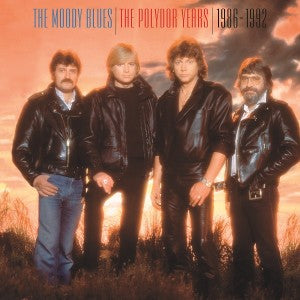Parade.com

Music legends don’t come along every day, so I am always thrilled when one decides to take a moment to share his or her journey with me. But when
Justin Hayward, the legendary Moody Blues’ guitarist and vocalist joined me for my podcast
Whine At 9, I was happily caught off guard. Gifted
musicians specialize in making magic for their audiences, and Hayward is no exception. However, Hayward’s wisdom, unique sensitivity, eloquent disclosure, and artistic passion made me feel as though I’d been chatting with a dear friend who happened to be a philosopher– oh yeah, and a rock icon. No doubt, these characteristics have been a driving force in his career longevity and the continued synergy of
The Moody Blues. In a revealing conversation, Hayward shared with me his journey with the band, the mystery behind writing hit songs, the inspirational conflict behind Nights in White Satin, and a
solo tour that will precede the upcoming “Moodies” tour.
Watch a video of Justin Hayward’ s solo performance of Nights in White Satin here.
It is difficult to imagine The Moody Blues as a startup, but when Justin Hayward joined the band in 1966, there was no flashy stage show or fleet of tour buses. Says Hayward, “Suddenly I found myself in the band. And off we went– You know really with no money, but we did have a van that we could put our equipment in. Actually– I was the only one with an amplifier at that time, but we made due. And we went to Belgium and got some gigs. And that’s how we started really.” And while some fans may believe that the infamous group quickly rose to fame, the climb to the top wasn’t an especially speedy one. “Success didn’t happen overnight, that’s for sure,” notes Hayward. “And the next big milestone really was recording our own material. Because when I came to The Moody Blues, we were a rhythm and blues band. I was lousy at rhythm and blues– I think the rest of us were. The two guys who were good at it had left (the band). And anyway, I was persuading the other guys to include some of my songs in the set, and so was Mike (Pinder). But then our break came about a year later when we’d written a stage show which was all our own material and we were doing that on stage. And we got to record that for Decca (Records). And that became an album called
Days of Future Passed with (songs) Nights in White Satin and Tuesday Afternoon. But still, the success and any royalties and any fame or fortune took maybe 5 years. Even Days of Future Passed, even though it was released in 1967, it didn’t get to #1 in
America until 1972. So through those ‘60s years, we were pretty kind of hard up.”
The Moody Blues’ 8-disc set, The Polydor Years (1986-1992) will be released November 25, 2014.
Hayward, who penned many Moody Blues’ hits, including Nights in White Satin, Tuesday Afternoon, and Your Wildest Dreams, seems to have the golden touch when it comes to creating music that touches the vulnerability, pain, happiness, and dreams most of us experience. Does he have a secret to making these poignant connections? Hayward barely pauses, “There’s no secret, but inspiration has to find you working. And that’s one of the key things that I’ve always remembered. And if I put my mind to it tonight, I think I could take a guitar and by 2 or 3 o’clock in the morning, something will have happened– I’ll have had something to hang onto. But I think that’s the key. But you know, as well as I do, that any kind of writing like that is sort of 3% inspiration and then 97% hard work– of finding the spark first of all which is in that 3% inspiration. And the idea and the first kind of magical theme of it. And then working on how to complete it and how to make that an entity and a real song. So I can’t say there’s any secret to it, but it is mysterious.” Hayward admits that he doesn’t want to analyze the components of a great song, but he decribes his writing experience as “an odd thing”. The
musician can’t help but shake his head and laugh a bit about the situation. “It’s like having a room in your house that nobody else can go in– without that room it (life) would be very incomplete. And that’s rather disturbing.”
The inspiration for Nights in White Satin, one of Haywards’ most legendary songs, has long been attributed to a tumultuous relationship and break-up. Hayward admits that pain can be a catalyst for creativity. “There is definitely a feeling that you can take out of pain and loss and sorrow– that is a kind of a well for (you) lyrically and musically. Once you’ve touched that sort of desperation of pain and loss, then it stays with you and you can always relate anything that you’re talking about to those days of kind of grief and loss.” Adds Hayward, “With Nights (in White Satin) in particular– Yes, I was at the end of one big love affair, which– was over that period when I was 19-20. It was just one big love affair that I thought I would never recover from or have again– and maybe I haven’t had again curiously enough. And (I was) at the beginning of another one (love affair), which also had my head spinning. So I think Nights is a series of random thoughts by a boy who’s at the end of one love affair and the beginning of another. But there curiously seems to be quite a lot of truth in it, which I never really realized or thought about until I’ve been analyzing it.”
This month, Justin Hayward will be singing Nights in White Satin again, along with other hits and acclaimed music from his solo albums
Spirits of the Western Sky, and the recently released
Spirits…Live – Live At The Buckhead Theater, Atlanta (now also available on
DVD), when he hits the road for his solo tour. The intimacy of the solo tour seems like a perfect match for the pensive artist and his work. “Spirits of the Western Sky, the album that I had out last year, was such a big part of my life. It took over my life for about 2 years. And in it I was expressing and revealing things that, for me, were very emotional and very important— just about people around me, people that I loved, people that I loved that didn’t know I loved them.” Hayward calls this touring experience the “perfect compliment” to the bigger, louder, electric
Moody Blues’ 2015 tour which he embraces with equal enthusiasm. “I’ve got used to the road. And having that bit of magic in a room with a group of people is something that I never want to give up. It’s a kind of drug. I get hooked on that.” And so do we.
Watch a video of Justin Hayward’s solo performance One Day, Someday (Spirits Live) here.
Listen to Nancy’s interview with Justin Hayward here, on iTunes, orStitcher Radio.
Nancy Berk, Ph.D. is a clinical psychologist, author, comic and entertainment analyst. The host of the showbiz podcast
Whine At 9, Nancy digs a little deeper as she chats with fascinating
celebrities and industry insiders. Her book
College Bound and Gagged: How to Help Your Kid Get into a Great College Without Losing Your Savings, Your Relationship, or Your Mind can be seen in the feature film Admission starring Tina Fey and
Paul Rudd.
 Music legends don’t come along every day, so I am always thrilled when one decides to take a moment to share his or her journey with me. But when Justin Hayward, the legendary Moody Blues’ guitarist and vocalist joined me for my podcast Whine At 9, I was happily caught off guard. Gifted musicians specialize in making magic for their audiences, and Hayward is no exception. However, Hayward’s wisdom, unique sensitivity, eloquent disclosure, and artistic passion made me feel as though I’d been chatting with a dear friend who happened to be a philosopher– oh yeah, and a rock icon. No doubt, these characteristics have been a driving force in his career longevity and the continued synergy of The Moody Blues. In a revealing conversation, Hayward shared with me his journey with the band, the mystery behind writing hit songs, the inspirational conflict behind Nights in White Satin, and a solo tour that will precede the upcoming “Moodies” tour.
Watch a video of Justin Hayward’ s solo performance of Nights in White Satin here.
It is difficult to imagine The Moody Blues as a startup, but when Justin Hayward joined the band in 1966, there was no flashy stage show or fleet of tour buses. Says Hayward, “Suddenly I found myself in the band. And off we went– You know really with no money, but we did have a van that we could put our equipment in. Actually– I was the only one with an amplifier at that time, but we made due. And we went to Belgium and got some gigs. And that’s how we started really.” And while some fans may believe that the infamous group quickly rose to fame, the climb to the top wasn’t an especially speedy one. “Success didn’t happen overnight, that’s for sure,” notes Hayward. “And the next big milestone really was recording our own material. Because when I came to The Moody Blues, we were a rhythm and blues band. I was lousy at rhythm and blues– I think the rest of us were. The two guys who were good at it had left (the band). And anyway, I was persuading the other guys to include some of my songs in the set, and so was Mike (Pinder). But then our break came about a year later when we’d written a stage show which was all our own material and we were doing that on stage. And we got to record that for Decca (Records). And that became an album called Days of Future Passed with (songs) Nights in White Satin and Tuesday Afternoon. But still, the success and any royalties and any fame or fortune took maybe 5 years. Even Days of Future Passed, even though it was released in 1967, it didn’t get to #1 in America until 1972. So through those ‘60s years, we were pretty kind of hard up.”
Music legends don’t come along every day, so I am always thrilled when one decides to take a moment to share his or her journey with me. But when Justin Hayward, the legendary Moody Blues’ guitarist and vocalist joined me for my podcast Whine At 9, I was happily caught off guard. Gifted musicians specialize in making magic for their audiences, and Hayward is no exception. However, Hayward’s wisdom, unique sensitivity, eloquent disclosure, and artistic passion made me feel as though I’d been chatting with a dear friend who happened to be a philosopher– oh yeah, and a rock icon. No doubt, these characteristics have been a driving force in his career longevity and the continued synergy of The Moody Blues. In a revealing conversation, Hayward shared with me his journey with the band, the mystery behind writing hit songs, the inspirational conflict behind Nights in White Satin, and a solo tour that will precede the upcoming “Moodies” tour.
Watch a video of Justin Hayward’ s solo performance of Nights in White Satin here.
It is difficult to imagine The Moody Blues as a startup, but when Justin Hayward joined the band in 1966, there was no flashy stage show or fleet of tour buses. Says Hayward, “Suddenly I found myself in the band. And off we went– You know really with no money, but we did have a van that we could put our equipment in. Actually– I was the only one with an amplifier at that time, but we made due. And we went to Belgium and got some gigs. And that’s how we started really.” And while some fans may believe that the infamous group quickly rose to fame, the climb to the top wasn’t an especially speedy one. “Success didn’t happen overnight, that’s for sure,” notes Hayward. “And the next big milestone really was recording our own material. Because when I came to The Moody Blues, we were a rhythm and blues band. I was lousy at rhythm and blues– I think the rest of us were. The two guys who were good at it had left (the band). And anyway, I was persuading the other guys to include some of my songs in the set, and so was Mike (Pinder). But then our break came about a year later when we’d written a stage show which was all our own material and we were doing that on stage. And we got to record that for Decca (Records). And that became an album called Days of Future Passed with (songs) Nights in White Satin and Tuesday Afternoon. But still, the success and any royalties and any fame or fortune took maybe 5 years. Even Days of Future Passed, even though it was released in 1967, it didn’t get to #1 in America until 1972. So through those ‘60s years, we were pretty kind of hard up.”
 The Moody Blues - The Polydor Years
The Moody Blues - The Polydor Years